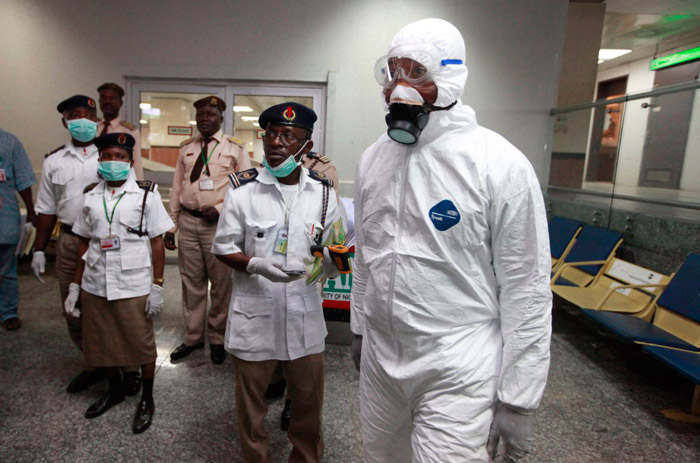The Ebola epidemic and the recent cases of infections in airports across western countries, shed light on the U.S’s. role as one of the leaders against the spread of Emerging Infectious Diseases (EID).
Global health already faced several EIDs, including bird flu, swine flu, and HIV/AIDS, and the U.S. was more than determined to act against them.
Nevertheless, there is a major controversy on the degree to which state-level governments have been motivated by facts and fear in their policies to deal with the disease. Over the past few weeks, seven states have implemented a full scale prevention program against the spread of the virus, including the controversial and mandatory 21-day quarantine for anyone returning from Sierra Leone, Guinea, or Liberia, and who has potentially been in contact with people infected by the virus. While the U.S. is presenting itself as an actor for worldwide safety and security from EIDs thanks to programs like the ‘Global Health Security Agenda’, the quarantine policy is an example of how its domestic politics can have the opposite effect. It has been criticized as excessive by the Center for Disease Control (CDC) and the Obama administration has expressed skepticism about the regulations. What all of these institutions and groups point to is the underlying political reality of the quarantine—the use of the politics of fear.
Brian Beutler, a senior editor for the New Republic, emphasized that the “issue with Ebola isn’t the virus itself so much as the paranoia about it.” This kind of disregard for established authorities in policymaking is uncalled for.
More importantly, the quarantine policy has had unintended consequences. For example, it has deterred many volunteers from going abroad. This was the main concern of the nurse who was forcibly put into quarantine, even though she showed no sign of infection. With the support of civil right activists and health organizations, she described the way she was treated as “criminal” and “inhumane,” which is the chief matter in question. With now more than 10,000 cases of infection and nearly 5,000 deaths, the role of medical volunteers in West Africa has become fundamental to the fight. But the quarantine policy turns the volunteering nurses and doctors into criminals and ‘incubators,’ a threat to American health. The quarantine policy conveys the idea that the disease needs now to be countered in the airports, whereas it can and should be countered in the West African countries.
Another damaging consequence concerns the renewal of media and popular representation of Africa as the ‘sick continent.’ Ebola, as it has come to be understood, is no longer just a disease but specifically an ‘African’ disease. This problem has been noted by Angelique Kidjo, who expressed her concerns over the “dehumanization of Africa” in a New York Times column. Africans have fought to reconstruct the image of their homeland; now scholars and journalists fear that the Ebola paranoia is going to reverse decades of improvements. There is an underlying risk of falling back to the view of a ‘dark and evil’ Africa. As Kidjo stated, “Do not let Ebola dehumanize Africa.”Africa is so much more than that, and the state-level quarantine policy does not support this mindset.
The Ebola paranoia in the U.S. has nurtured a vicious cycle of fear, moving to a point where it is not grounded in science but rather in an irrational panic. To truly counter the disease, American policymakers must not succumb to this mass hysteria.








